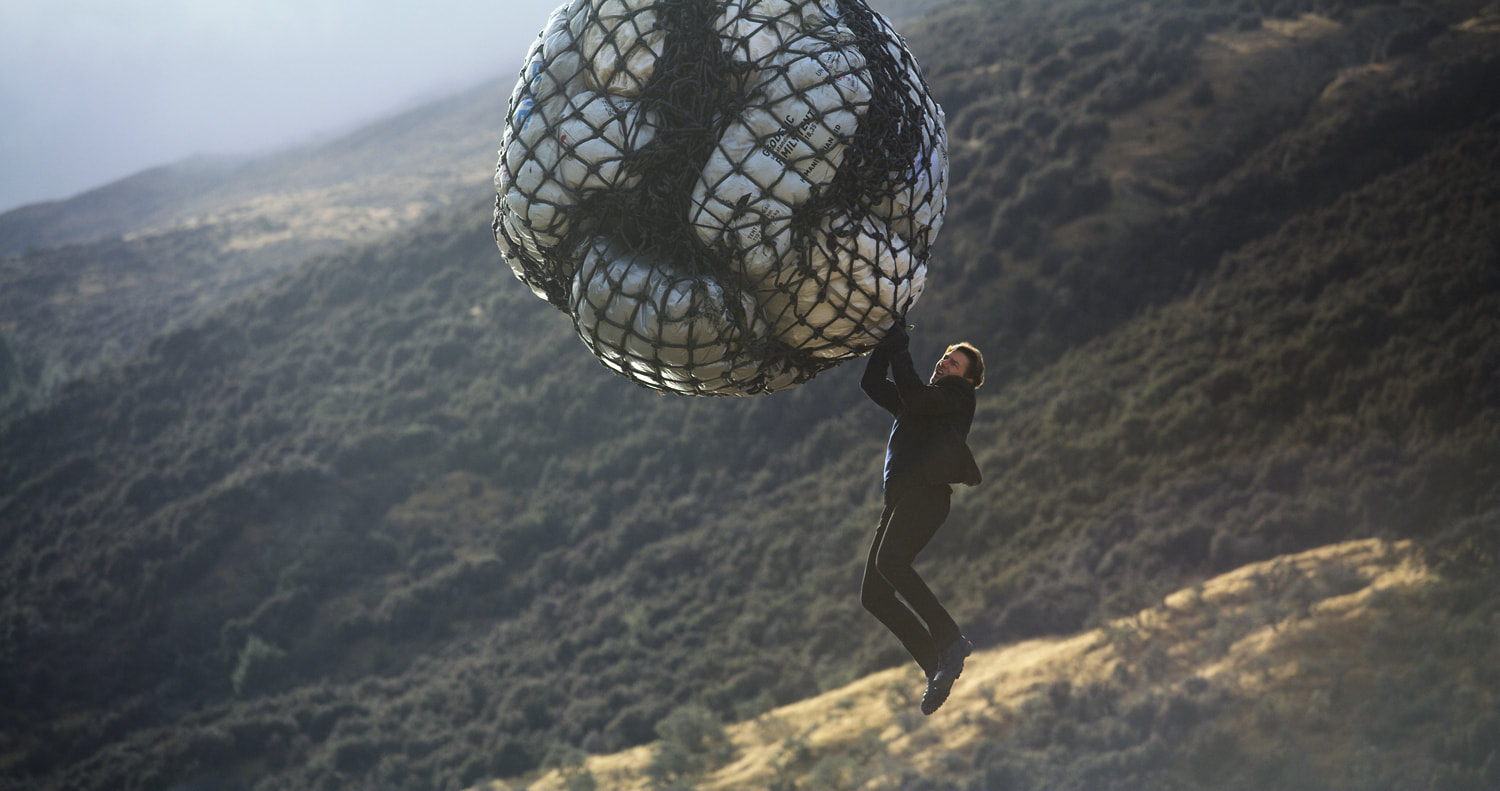McQuarrie knows what fans expect of a Mission Impossible movie, and he gives them all they can handle. After some quick and relatively painless plot set-up, he’s throwing Cruise and Cavell out of a plane for a HALO jump onto a Paris nightclub. In the first of several impossible, how-did-they-do-that shots, the camera follows Cruise as he straps on his helmet and jumps into the evening sky, following him in frame as he descends. The film doesn’t slow down the pace from here, moving briskly but not hurriedly through bathroom-destroying brawls, motorcycle pursuits, rooftop foot races, and games of chicken but with helicopters. The face-swapping blusters within fakeouts within ruses that are another signature of the series keeps the viewer intrigued when they’re not watching Cruise cheat death, if not injury (Cruise broke his ankle on set, halting production for a cost of $80 million).
Despite stuffing as much as possible into the film’s 147-minute runtime, the sensation of watching Fallout is the difference between being impressed and engaged. Neither are bad, but one is preferable to the other. The action is more rugged than elegant, with the latter a missing quality altogether outside of a bog-standard nightclub sequence. Gadgetry, a key piece of Rogue Nation and fourth entry Ghost Protocol, takes a backseat to the raw power of Walker’s bulky arms, cocked like shotguns in the aforementioned bathroom fight. The franchise has always functioned as a sexless alternative to James Bond, and this rhymes with Bond’s License to Kill, a grittier entry missing some key aspects of what’s made it great.
Fallout also misjudges how much value to place on an earlier romantic relationship. Cruise hasn’t had romantic chemistry with an actress in a long time, including Mission Impossible III, a more personal entry in the franchise that introduced Hunt’s wife Julia (Michelle Monaghan). She’s reintroduced in Fallout to up the stakes on a potential nuclear disaster, a miscalculation not unlike the one at the heart of Blade Runner 2049, another film that thinks people cared about an awkward romantic relationship from an earlier entry more than they do. Time with Julia is time taken away from Ilsa Faust (Rebecca Ferguson), a co-lead and standout from Rogue Nation who takes a backseat here.
While merely satisfying instead of awe-inspiring, Fallout does manage to be about something in between its breathless set-pieces. Lane’s original sin, back when he was an agent similar to Hunt, was his commitment to the mission at expense of all else, a fervor that would lead him to blow up entire airplanes full of people to get to his single target. Walker is also described as a blunt instrument, implying no small amount of collateral damage. The opening mission itself hinges on Hunt’s willingness to sacrifice his crew in exchange for obtaining the plutonium, and this is shown to be the hill that he cannot die on. McQuarrie provides Cruise with several opportunities for real acting unencumbered by stunt choreography as he internally weighs the life of an innocent bystander or a cop in the wrong place at the wrong time against the potential fate of thousands and millions. Hunt’s refusal to sacrifice anyone makes Fallout a nice companion piece to the summer’s other giant action film, Avengers: Infinity War. The thematic comparison is present, though Fallout contains a small sliver of Infinity War’s CGI. Maybe if Chris Pratt started praising Xenu instead of Jesus, he could be a more bruising action star. B

 RSS Feed
RSS Feed